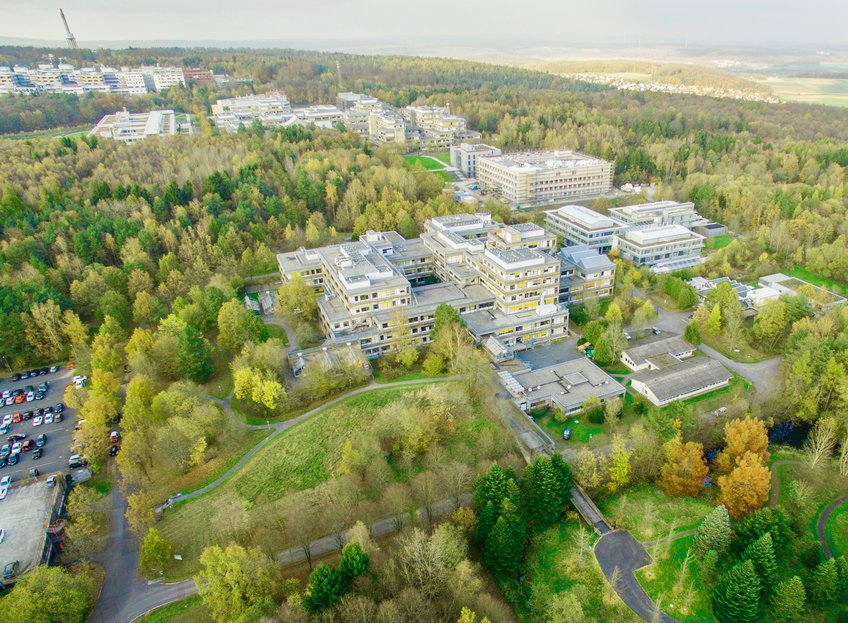Campus Lahnberge
The Max Planck Institute for Terrestrial Microbiology is located on the Campus Lahnberge, which hosts most of the faculties in the natural sciences, life sciences and medicine of the Philipps-Universität Marburg. Also, the university clinics are located on this campus. Our close neighbors on campus are the Faculties of Biology, Chemistry, Medicine, Mathematics & Informatics as well as the Center for Synthetic Microbiology (SYNMIKRO). The Microcosm Earth Center (MEC) is located in the building of the Faculty of Chemistry. The research at the Max Planck Institute is particularly closely connected to the Faculties of Biology and Chemistry, as well as to the Faculty of Physics that is located in downtown Marburg. The close proximity of the Max Planck Institute to the university faculties facilitates interactions among both institutions and creates a highly stimulating and interdisciplinary scientific environment for microbiology research that is unique not only in Germany but also worldwide.
More than 50 research groups on Campus Lahnberge focus their research on microbiology. Among these research groups, approximately 30 focus on basic aspects of how microorganisms function at the atomic/structural, molecular, cellular and community levels as well as in host-microbe interactions. Moreover, several groups take a theoretical approach to understanding microbial function and use theoretical modeling to understand microbial systems. Together the Max Planck Institute, the Philipps-Universität Marburg, SYNMIKRO and the MEC have established a superb infrastructure on Campus Lahnberge with access to state-of-the-art equipment in mass spectrometry for proteomics and metabolomics, live cell imaging incl. FRET, FRAP and TIRF as well as high resolution microscopy such as PALM/STORM, STED and SIM, transmission electron microscopy, robotics for high-throughput screening, protein-protein/ligand interactions and flow cytometry and FACS.
The broad spectrum of microorganisms studied in Marburg includes bacteria, archaea, fungi, protozoa, and microalgae, as well as viruses. These microorganisms are analyzed at all levels including biochemistry, molecular and cell biology, physiology, microbial communities and host-microbe interactions. The research groups at the Max Planck Institute and at the university also cooperate in teaching of BSc and MSc students as well as in training of doctoral researchers. Several research group leaders at the Max Planck Institute are full or adjunct professors of the Faculties of Biology, Chemistry and Physics and participate in teaching of microbiology, genetics, cell biology, synthetic biology and biophysics.

